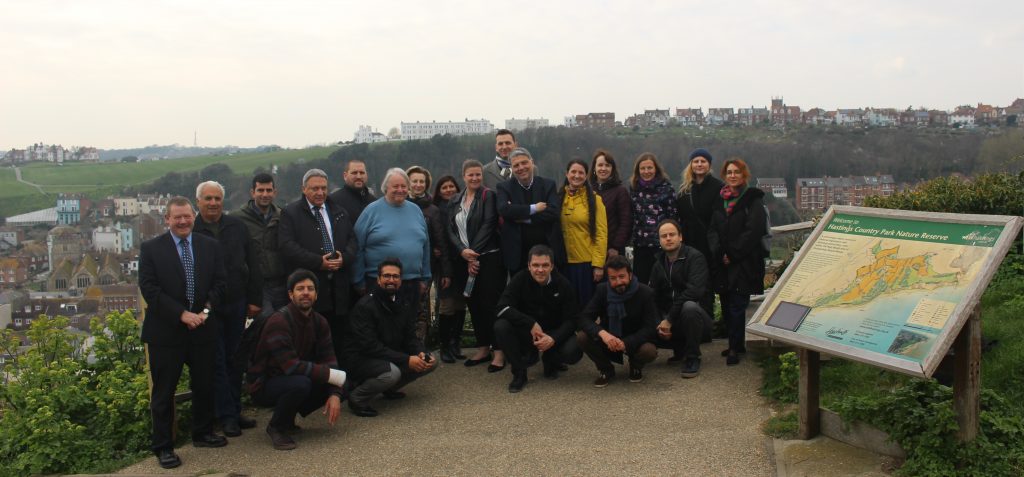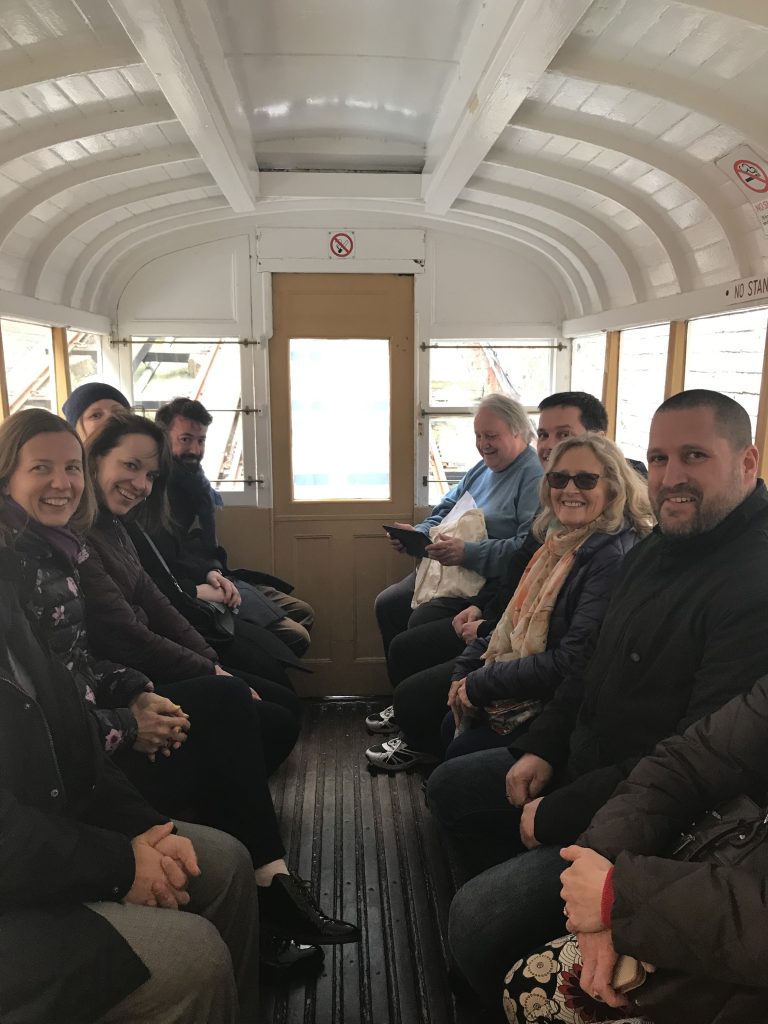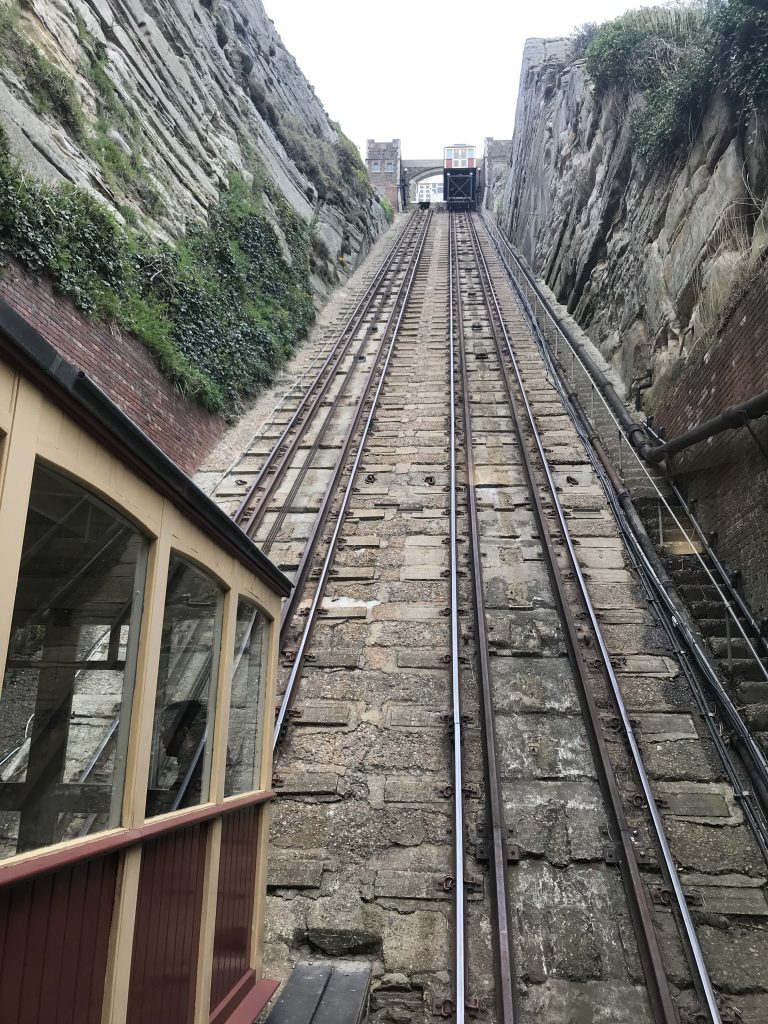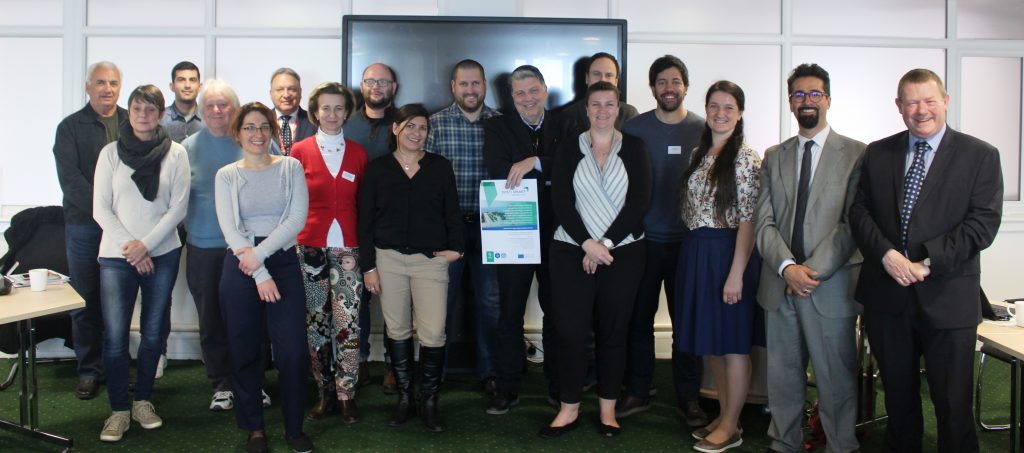Low-carbon transport systems for visitors at tourist destinations was the topic of the 1st Thematic Workshop of the Interreg Europe DESTI-SMART project, which took place on March 27-28, 2019 in Hastings, East Sussex, UK. The Workshop was hosted by the Hastings Borough Council. Representatives and stakeholders of all ten project partners participated.
The Project Coordinator, Mr Manos Vougioukas, introduced the project and the purpose of the Workshop. He outlined that the DESTI-SMART project has from the outset established links with the ‘Smart Destinations’ initiative of the UN World Tourism Organisation (UNWTO) and participated in the 2nd UNWTO World Conference on Smart Destinations (WCSD) held in Oviedo, Asturias, Spain, on 25-27 June 2018.
In order to lead and shape new tourism models for the 21st century based on innovation, technology, sustainability and accessibility, WCSD gathered international tourism experts to discuss the opportunities and challenges for tourist destinations, arising from the development, implementation and management of innovative products and services that are based on new technological solutions. Sustainability, accessibility, multimodality and digital agenda in tourism are key features of smart destinations, with synergies to DESTI-SMART project themes and actions.
The project partnership aims to incorporate low-carbon mobility solutions in the smart destinations concept. The UNWTO Smart Destinations initiative leads to new tools to be adopted by the DESTI-SMART partnership. DESTI-SMART also followed the 1st European Capital of Smart Tourism (ECST) awards by the EC DG GROW, with a view to mobilising candidatures amongst project partners in the future. The ECST awards include sustainability, accessibility and digitalisation, closely related to this project. The Project Coordinator stressed that the purpose of the 1st Thematic Workshop in Hastings was to identify potential low-carbon mobility solutions for sustainable tourism in terms of proposed actions to be included in the action plans at each partner region, in improving the respective policy instruments towards smart mobility destinations.
There is still a very long way to go in order to reduce emissions from transport means. Today, as we speak, emissions are above the 1990s levels. Transport emissions in the EU represent 30% of the total emissions, mentioned Prof. Derek Robbins of Bournemouth University, an advisory partner in the DESTI-SMART project. He also stated that by 2020 there will be a dramatic demand for e-mobility due to its benefits, such as GHG emissions reduction and improvement of air quality which is directly linked to asthma and other fatal diseases related to poor air quality. Derek Robbins presented the state of the art regarding sustainable tourism mobility, with the latest solutions for low-carbon transport for visitors at tourist destinations.
Electric or compressed natural gas buses, electric trains, electric bikes and scooters, even electric ferries, are some of the initiatives that the partners presented in the Workshop transferring their experiences from their countries.

About 10 years ago Palma de Mallorca had 42 diesel buses and 12 CNG buses. In 2019 no diesel buses were purchased and 100 CNG buses joined our bus fleet. In 2020 a CNG filling infrastructure will have been constructed next to the bus depot and biogas will be produced at the local level said Carlos Petit Boqu, Civil Engineer and Public transport specialist of Mallorca Transport Consortium, presenting the progress made in public transport towards low-carbon mobility in Mallorca, a place with mass tourism and extremely high tourist flows.
Latvian Greenway’s association is working on promotion of cycling and walking for sustainable mobility and sustainable tourism development was also one of the issues highlighted in the Workshop, a topic that will be discussed at a later time in the framework of the DESTI-SMART project. Involved stakehloders from Latvia admits that developing the cycling and walking in their territories is high priority for developing the tourism offer.


Good practices and results from other EU projects and initiatives on low-carbon mobility transport systems at tourism destinations were also presented by experts of the transport sector. InnovaSUMP Interreg Europe, CIVITAS DESTINATIONS, SEEMORE, ECOTALE INTERREG IVC were some of the projects that DESTI-SMART has created synergies with, in order to enable knowledge transfer and results sharing.
Claudio Mantero of Horarios do Funchal Public Transport S.A., transferred his experience for the implementation of CIVITAS DESTINATIONS project in Madeira, a destination where tourism contributes 20% to the region’s GDP: Electric bus is technically feasible and cost-effective and environmentally advantageous in relation to diesel and natural gas…86% saving in energy costs and a 75% reduction in CO2 emissions stated Mr Mantero.
Another issue that was highlighted in the Workshop was that promotional campaigns play a significantly important role in raising public awareness on the promotion of low-carbon initiatives and also to stimulate electric vehicle use and ownership. The Workshop ended with a discussion in four smaller groups were topics such as the implementation of low-carbon sustainable mobility options, a common methodology for travel behaviour research, implementation of feasibility studies and improvement of policy instruments were elaborated.
DESTI-SMARTs overall objective is to improve the transport and tourism policies of EU destinations, by integrating strategies for sustainable mobility, accessibility and responsible travel with efficient & sustainable tourism development. DESTI-SMART promotes the transition to a low-carbon economy, through efficiency, resilience, multimodality, novel low-carbon transport systems and the promotion of cycling & walking.

Interreg Europe Programme
The Interreg Europe Programme of interregional cooperation helps regional and local governments across Europe to develop and deliver better policy. By creating an environment and opportunities for sharing solutions, the aim is to ensure that government investment, innovation and implementation efforts all lead to integrated and sustainable impact for people and place.
By building on its forerunner, INTERREG IVC (2007-2013), Interreg Europe aims to get maximum return from the EUR 359 million financed by the European Regional Development Fund (ERDF) for 2014-2020.
Solutions exist that can help European regions become the best that they can be. Today, the EU’s emphasis is very much on paving the way for regions to realise their full potential by helping them to capitalise on their innate strengths while tapping into opportunities that offer possibilities for economic, social and environmental progress.
To achieve this goal, Interreg Europe offers opportunities for regional and local public authorities across Europe to share ideas and experience on public policy in practice, therefore improving strategies for their citizens and communities.
Delivering Efficient Sustainable Tourism with low-carbon transport Innovations:
Sustainable Mobility, Accessibility and Responsible Travel
Thessaloniki – Sardinia – Bremerhaven – Madeira – Hastings – Mallorca – Latvian Greenway’s association – Balaton – Pafos BU
